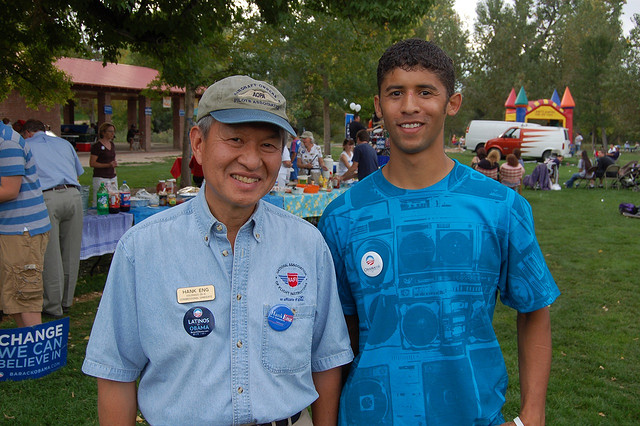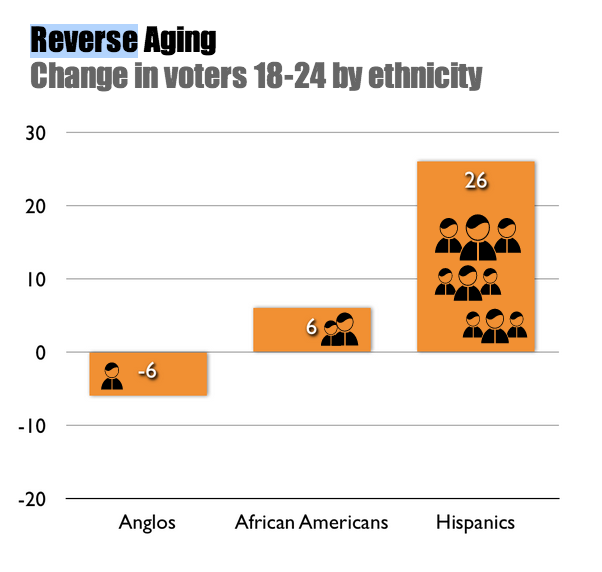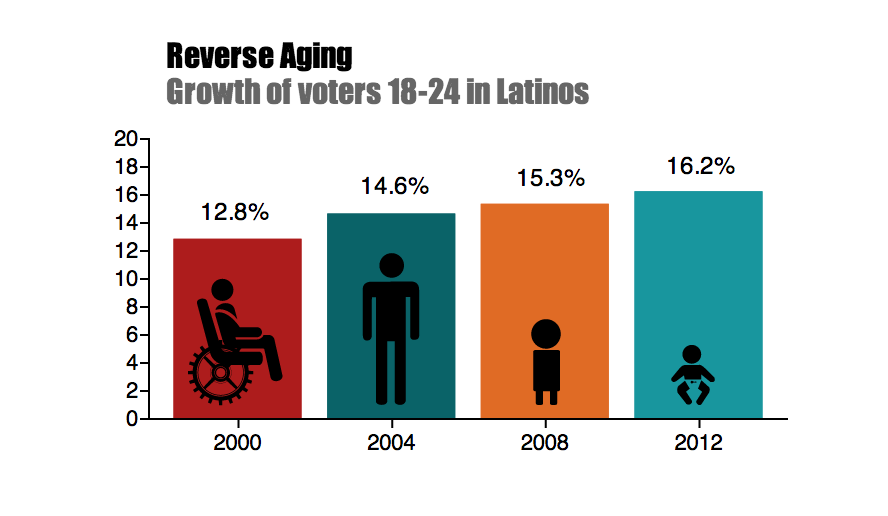Mi’jitos and Viejitos

What Pundits Don’t Get About the Drop in Latino Voter Turnout
By James Aldrete, NewsTaco
You put the word “Latino” in front of “data analysis” and it brings with it a heavy dose of Catholic guilt. That’s the case at least with much of the recent punditry on Hispanic voter turnout based on new Census data. Hispanic and Anglo columnists alike want us to feel shame, not pride, in the role of Latinos in delivering President Obama his reelection victory.
Based on a Census review of the 2012 election, as reported in a Pew Hispanic report, Chris Cillizza with the Washington Post writes, “the untold story of the 2012 election is that Hispanics took a step back when it came to their influence in presidential politics.”
Meanwhile, columnist Esther J. Cepeda sought vindication, “Last year I took heat for suggesting that the Latino vote wouldn’t live up to the hype. But the numbers don’t lie.”
Cillizza and Cepeda both point to numbers coming out of Census data, and analyzed by Pew Hispanic, that show Latino turnout dropped from nearly 50% in 2008 to 48% in 2012. They also chide Hispanics for lagging behind turnout rates among African Americans and Anglos and pile on shame by pointing out that more Latinos sat the election out than showed up at the polls.
Shouldn’t that be cause for alarm? Maybe and maybe not.
First off, it’s important to note that the critique may look like three different statistics, but it’s three different takes on one variable — turnout, the ratio of Latinos who voted to all eligible Latino voters.
When one number changes, the first reaction should be to see if any other numbers have changed, not shoot off a headline, “The Hispanic Vote is a Sleeping Giant. Might Never Wake Up” (the actual title to Cillizza’s article).
Turns out some other notable numbers have changed. In fact the Hispanic voting universe in 2012 was very different from 2008. For starters, it was younger. Dig deeper and you’ll see Hispanic voters in 2008 were younger than in 2004, who in turn were younger than Hispanic voters in 2000.
Most pundits, including Cillizza, acknowledge that Hispanics are a young community. But what they fail to understand is that we’re getting younger by the day. From 2000 to 2012, the share of Hispanic voters ages 18 to 24 increased by 26%, while the percentage 65+ decreased by 6%. When Pew shrinks the age range from 18 to 22, they find a 43% jump in younger voters from 2008 to 2012. We’re reverse aging — Latinos are the Benjamin Button of racial ethnic groups.
This isn’t happening to Anglos, who saw a 15% increase in voters 65+ over the same time period, and a 6% decline in younger voters. While African Americans saw a 6% increase in younger voters, they also saw a 9% increase in older voters.

This shouldn’t be surprising. One of the most cited statistics on Latino growth is the fact that 50,000 Latinos turn 18 every month. As Victor Landa hinted in a previous post, when that happens month after month the median age drops. According to Latino Decisions, the median age for Latinos is now 15 years younger than the median age among Anglos. That gap will only continue to grow.
Complain all you want that youth is wasted on the young. In civic life, youth just makes you look fat. Political scientists have known since the 1940’s that age is one of the most reliable predictors of one’s likelihood of voting. After decades of confirming studies, the point is taken as a given: the older you are the more likely you are to vote. While the young are just simply too busy texting.
I recognize that Latino self image is reflected in voter turnout. Whether it’s a point of pride or shame, no one argues we can do better. And Pew has some fascinating details worthy of attention, including the fact that turnout fell among most all Latino subgroups (Hispanics 65 and over being a notable exception). The real story of 2012 was how Latinos became reengaged in a reelection year during an extended recession in which Latinos themselves were feeling the brunt of it, suffering the greatest loss of wealth.
But before people get demoralized in the sleeping giant cliché that reporters just can’t shake, it’s important to remember that what wins elections is increasing the number of raw votes that in turn increases the vote share of your more favorable voting blocs.
In 2012, 1.4 million more Latinos showed up to the polls. The Latino share of the national vote rose from 7.4% to 8.4% of the total vote, and in key battleground states like Nevada it rose from 15% to 18% while in Florida it rose from 14% to 17% of the vote.
That’s how you win elections. That was the story of 2012. And nothing has changed, except for the fact that we keep getting younger.
James Aldrete is president and creative director of Message Audience and Presentation, an Austin-based political consultancy. Follow Message Audience and Presentation onTumblr.
[Photo by mattlemmon]

